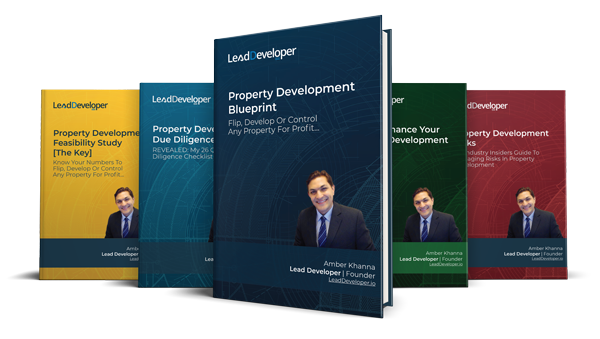Active property developers
Active property developers are individuals or companies actively acquiring, developing, and managing properties. They are hand on in the entire process of property development.
These property developers research and find their own sites, organise permits and actively participate in the day-to-day decision-making with respect to designing, building, and selling or renting the finished product.
They actively work with construction contractors and manage their developments from start to finish. Sometimes they even manage their rental units themselves.
Active property developers go on to become what is known as General Partners in a project.
You are missing out if you haven’t yet subscribed to our YouTube channel.
Passive property developers aka Armchair property developers
On the other hand, passive property developers typically invest in properties & projects that are either about to go into development or are already developed and generating income.
Armchair developers invest in projects via syndicated developments or REITs (real estate investment trusts). They are usually less involved in property acquisition, development, and management than active developers.
Passive or armchair property developers often invest in real estate to earn a return on investment through rental income, capital appreciation or both and by investing in projects run by other developers via a property syndicate.
They typically invest in a property already built and generating income, such as an apartment building or a shopping centre. Passive real estate investors may also invest in real estate investment trusts (REITs), companies that own and manage real estate properties and pay dividends to shareholders.
Passive property developers typically have a more hands-off approach to their investments, leaving the rental properties’ development management to professional property managers or the development management team of the REIT they have invested in.
They are often more focused on the financial return of the investment and may not be as involved in the day-to-day operations of the properties.
Learn More
The passive developer does not own the land outright; instead, they own a stake in a business or a fund that develops property. Passive or arm chair developers are also known as limited partners.
Property Development Books - “Starter-Pack”
18 Property Development Books To Get You Started Now
Includes 18 x detailed eBooks
✓ Property Development Checklist - 6 Pages
✓ How To Finance Your Property Development Project? - 13 Pages
✓ Property Development Team - 19 Pages
✓ Site Acquisition Process - 14 Pages
✓ The Ultimate Guide To Getting Started In Property Development - 42 Pages
✓ My Secret Property Development Process - 28 Pages
✓ How To Nail Your Next No Money Down Deal? - 29 Pages
✓ Industry Insiders Guide To Managing Risks In Property Development - 26 Pages
✓ How To Become A Property Developer? - 41 Pages
✓ Do You Have What It Takes To Be A Property Developer? - 12 Pages
✓ 7 Common Mistakes Made By Property Developers & How To Avoid Them? - 12 Pages
✓ 5 Reasons, Buy & Hold Property Investors Fail At Property Development - 16 Pages
✓ 10 Financial Mistakes Made By Property Investors & Developers - 54 Pages
✓ My 26 Question Due Diligence Checklist - 21 Pages
✓ Property Development 101: The Feasibility Study - 34 Pages
✓ Property Development 101: Construction Guide - 55 Pages
✓ Property Development Blueprint - 66 Pages
✓ Your Definitive Guide To Property Options - 36 Pages
Summary
In summary, active property developers are individuals or companies actively involved in property acquisition, development, and management. In contrast, passive property developers typically invest in properties that are already developed and generate income.
You can join a property syndicate or invest in a development firm with management to oversee its numerous projects as a passive developer.
This is a terrific approach to get your feet wet because you’ll be able to learn a lot about the industry before attempting to develop one on your own.
You can also learn the basics of property development with the Free Quick-Start Property Development Course.





